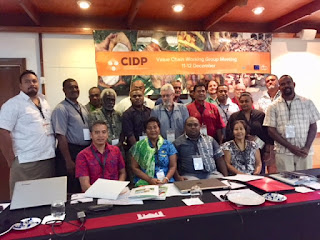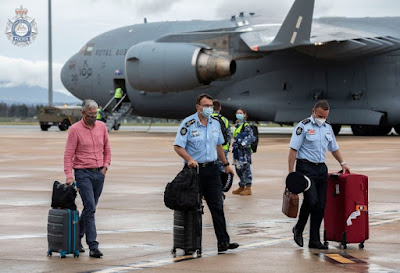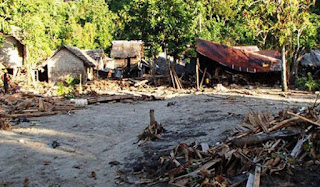Value chain analysis and awareness’ critical to progress of SI Coconut Industry
BY Ernest Ta'asi
Solomon Islands Chamber of Commerce & Industry
The Solomon Islands Chamber of Commerce & Industry (SICCI) joined regional working groups of the coconut industry at a meeting in Fiji that aims to increase the understanding of the coconut value chain in the Pacific.
The Solomon Islands delegation to the meeting was led by Rudolf Dorah representing the Pacific Private Sector Coconut Industry Working Group and other private sector representatives.
SICCI’s Export Industry & Development Officer (EIDO) John Paul Alasia attended the meeting on SICCI’s behalf and was part of discussions by 23 representatives from eight Pacific island countries at the “Pacific Coconut Sector Value Chain Working Group Meeting” that took place in Nadi, Fiji on 11 – 12 December 2017.
The meeting was initiated by the Coconut Industry Development for the Pacific (CIDP) program to help stakeholders and farmers in the Pacific coconut industry to better understand the position and process of the coconut value chain and identify the gaps that exist along the value chain.
“The value chain is an important aspect to the development of the coconut industry and it is imperative that farmers and stakeholders have a better understanding of the value chain to be able to remain competitive at this changing market,” said Mr Alasia who oversees SICCI’s support for the agribusiness working industry groups. “For instance, the market has different players, including strict requirements and standards to be met such as personal hygiene, food health and food safety standards such as CODEX & HACCP.”
Mr Dorah said he was grateful with the opportunity for Solomon Islands stakeholders to participate at this very important regional working group meeting in Fiji.
“Understanding the coconut value chain is critical to the sustainable development of our coconut industry, from coconut farmers right up to the end users, and this is why I’m glad the working group meeting brought together representatives from across the Pacific to deliberate on the Methodology of how to use the Value Chain analysis tools to identify the missing gaps and foster a better understanding on the main actors along the chain,” said Mr Dorah.
“The Solomon Islands coconut industry has a great potential to contribute more millions of US dollars from what we are currently receiving now if we can approach it with technological innovation and add value to it, obviously for the benefit of all our coconut farmers who have been crying for a better way to improve their livelihood from their coconut trees.”
He said Solomon Islands produces around 370 million fruits per year worth over USD500Million income for this country per year.
“However, sadly we are merely earning only USD10-15Million per year, and worse over 170million fruits are wasted throughout the country, a further loss of around USD100million to the nation,” Mr Dorah added.
“Value Chain analysis gave us the tools and methodology to accurately diagnose the problems affecting our coconut industry and provided us with a great insight into understanding the gaps and pitfalls we must seriously consider and pragmatically address if we as a nation is serious enough to see the coconut industry becoming a leading income earner sector in our country in the future.
Discussions also included an overview of the coconut market study for Pacific islands coconut products and the ability of industries to respond.
 |
| Regional Representatives in Nadi, Fiji |
The team was successful in securing positive outcomes for the Solomon Islands coconut industry which saw one of four key value chains identified project for Solomon Islands to be analysed through CIDP.
The team further secured a follow up regional value chain meeting sometimes in May of 2018 to be held in Honiara, with possibility of inviting local value chain members down to the farmers to be trained by the program.
The meeting was facilitated by the Pacific Community (SPC) and Pacific Islands Farmers Organization Network (PIFON) through a European Union (EU) funded action Coconut Industry Development for the Pacific (CIDP).
“We would like to thank the PS for the Ministry of Agriculture and Livestock, Solomon Islands Chamber of Commerce and Industry for supporting the participation of our private sector in this very important meeting, and we look forward for more collaboration between our line ministries with our private sector in moving the coconut industry forward.”
Other representatives with the Solomon Islands delegation included Jack Chotu for the Coconut Industry Working Group of Solomon Islands (IWG) and Moses Pelomo who was invited as an expert in the industry with many years of experience.
Ends//



Comments
Post a Comment